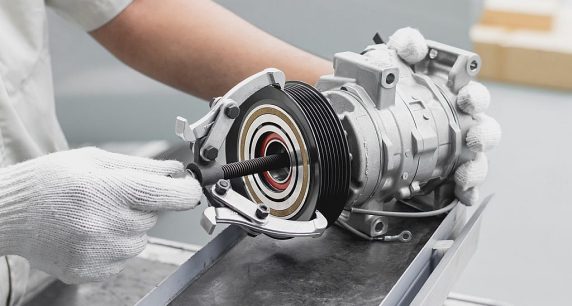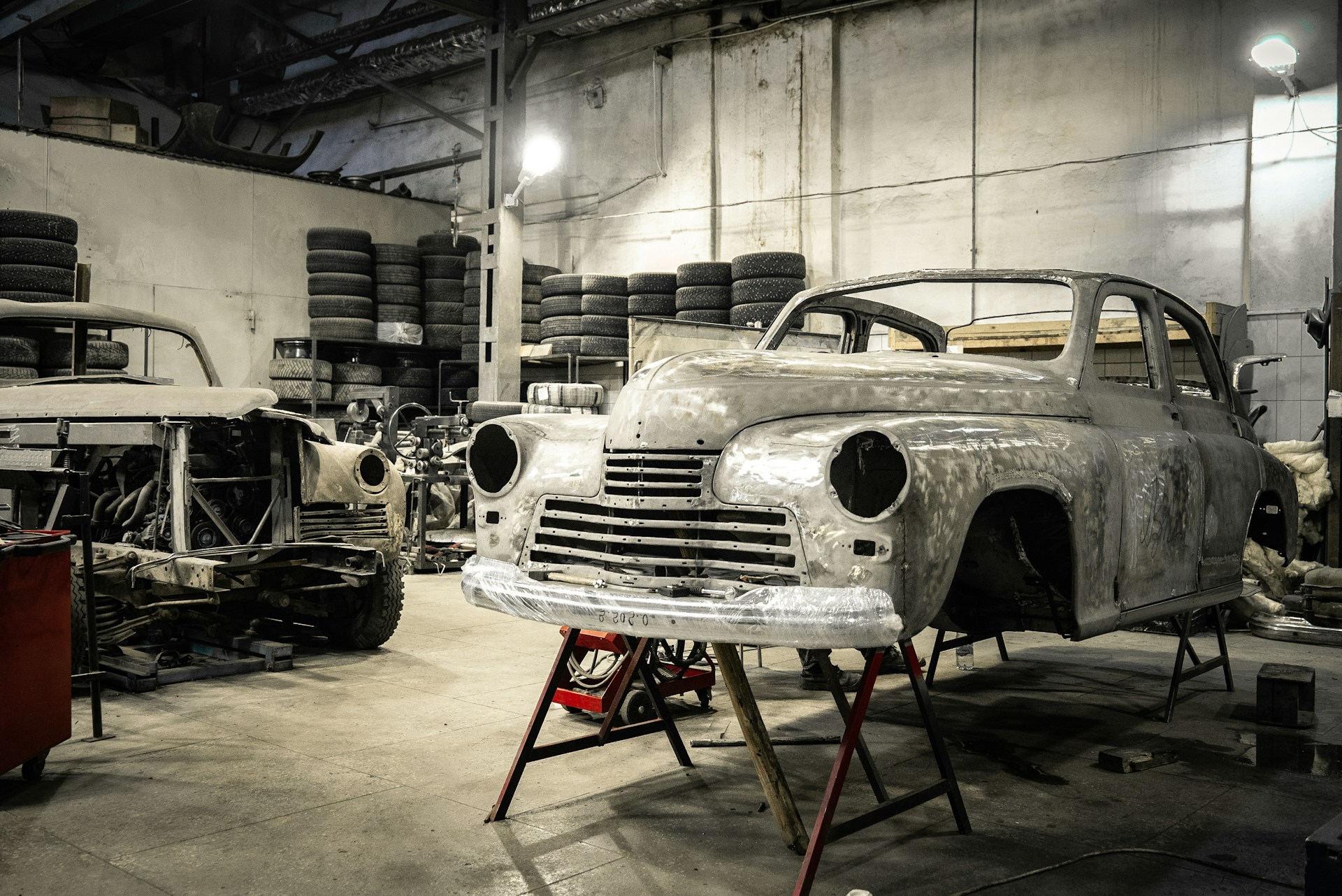A clicking noise coming from your car’s air conditioning (AC) compressor can be both annoying and concerning. Understanding the potential causes of this sound can help you troubleshoot and address the issue effectively before it leads to more significant problems. In this article, we will explore the common reasons behind a clicking AC compressor, how to identify them, and what steps you can take for a resolution.
Understanding the AC Compressor
The AC compressor is a crucial component of your car’s air conditioning system. It is responsible for circulating refrigerant throughout the system, allowing your AC to cool the air entering the cabin. When the AC is turned on, the compressor engages and begins to pressurize the refrigerant, aiding in the heat exchange process. If there’s a problem, like a clicking noise, it indicates that something is not functioning correctly.
Common Causes of Clicking Noise
Several factors can lead to a clicking noise emanating from your car’s AC compressor. Recognizing these issues is essential for effective diagnosis and repair.
1. Foreign Objects in the System
One of the simplest explanations for a clicking noise is the presence of foreign objects. Small debris, like stones or twigs, may find their way into the AC compressor clutch area. These objects can interfere with the functioning of the compressor and generate a clicking sound as they get caught in the mechanism.
To check for this, look around the compressor for any visible debris. A garage may require a thorough inspection to ensure nothing is lodged within the assembly. If found, removing these items can often eliminate the noise and restore normal function.
2. Worn or Damaged Clutch
The clutch engage and disengage the compressor, and as it does so, it can create a clicking or rattling noise, especially if it is worn or damaged. Over time, the internal components of the clutch can wear down, leading to a lack of proper alignment. This misalignment can produce a noticeable clicking sound each time the compressor engages.
If the clutch appears worn, it may need to be replaced. Failure to address this issue can lead to more severe damage to the compressor and the AC system as a whole. Regular maintenance checks can help catch this early before it becomes a significant problem.
3. Low Refrigerant Levels
Another common cause of clicking noises is low refrigerant levels. When the refrigerant is low, the compressor struggles to pressurize the system effectively. As it cycles on and off in an attempt to adapt to the low pressure, you might hear a clicking or chattering noise.
To check the refrigerant level, it’s advisable to have a professional inspect the system. If the levels are low due to a leak, it’s crucial to identify and fix the leak before adding more refrigerant. Not doing so could damage the compressor and other components of the AC system.
4. Electrical Issues
Electrical problems can also lead to clicking noises coming from the AC compressor. Faulty wiring or damaged connections can create intermittent electrical signals, causing the compressor to engage and disengage rapidly. This erratic behavior can produce a clicking sound and may be accompanied by other issues, such as the AC not cooling effectively.
If you suspect electrical problems, these should be addressed immediately. A professional mechanic can perform a thorough diagnosis of the electrical system to identify any damaged wires or connections. Resolving the electrical issues can restore proper operation and silence any unwanted clicking noises.
5. Compressor Bearings Wear and Tear
The bearings inside the AC compressor allow for smooth operation as the unit compresses the refrigerant. Over time, however, these bearings can wear out, leading to increased friction. This wear can produce a clicking or grinding noise, especially noticeable at specific speeds or under certain loads.
If you hear a clicking noise that correlates with the operating or idle speeds, it may indicate failing bearings. In this case, the entire compressor may need to be replaced, or the bearings serviced, depending on the severity of the wear.
6. Belt Issues
The serpentine belt or AC belt drives the compressor. If the belt is frayed, loose, or misaligned, it can create a clicking noise as it struggles to turn the compressor. A loose belt may slip, causing an irregular connection between the engine and the compressor, leading to intermittent engagement manifested by a clicking sound.
Regularly checking the condition of the belts in your vehicle and ensuring they are properly tensioned can help prevent this issue. If the belts appear damaged, they should be replaced immediately to avoid further damage to the AC compressor or stress on the engine.
Diagnosing the Problem
By now, you may have identified some potential causes of the clicking noise from your AC compressor. The next step is diagnosing the issue accurately. Proper diagnosis may involve listening for the sound at different speeds, checking the refrigerant levels, and visually inspecting the compressor and surrounding components.
If you are comfortable, some basic checks can be performed at home. However, for more complex issues like electrical diagnostics or internal compressor problems, seeking a professional mechanic’s assistance may be the best course of action. They can provide advanced troubleshooting with specialized tools and equipment, ensuring a comprehensive assessment.
Resolution and Prevention
Once the underlying issue is identified, appropriate steps can be taken to resolve the clicking noise from your car’s AC compressor. Resolving minor issues, such as removing debris or re-tightening belts, can often be done quickly and affordably. However, more significant repairs like replacing the clutch, bearings, or even the compressor itself can be more costly.
Preventative maintenance is key to ensuring the longevity of your AC system. Regular inspections, timely refrigerant replacement, and monitoring for any unusual noises can help catch problems early. Additionally, maintaining clean filters and ensuring the AC system operates at optimal levels can prevent wear and tear on the compressor.
Conclusion
A clicking noise from your car’s AC compressor can indicate several potential issues, ranging from minor debris interference to more significant problems like electrical faults or internal wear. Understanding these common causes allows you to troubleshoot effectively and seek the necessary repairs. Staying proactive with maintenance can help extend the life of your AC system and prevent more significant and costly issues in the future. Regular inspections and addressing little problems promptly can ensure you enjoy a comfortable car environment, regardless of the weather outside.
FAQs
1. How can I tell if the clicking noise is coming from the AC compressor?
Listen carefully to locate the source of the noise. The clicking should correspond to the operation of the AC. If it stops when the AC is turned off, it’s likely coming from the compressor.
2. Is it safe to drive if my AC compressor is making a clicking noise?
While you may still be able to drive, it’s advisable to get the issue checked out as soon as possible. Ignoring it can lead to greater damage and costly repairs.
3. Can a clicking AC compressor cause harm to my vehicle?
Yes, if left unchecked, the problem can lead to more significant issues such as compressor failure or damage to the AC system.
4. How often should I have my car’s AC system serviced?
It’s recommended to have your vehicle’s AC system checked at least once a year or whenever you notice any performance issues or unusual noises.
5. Will adding refrigerant fix the clicking noise?
If low refrigerant is the cause of the clicking noise, adding more can resolve the issue temporarily. However, it’s essential to find and repair any leaks before recharging the system.



